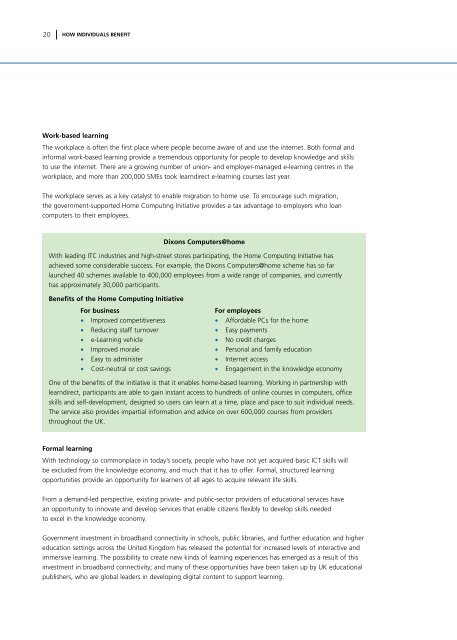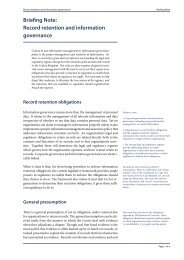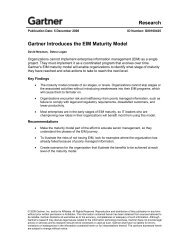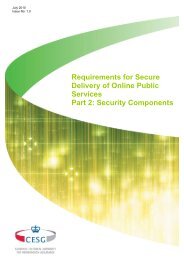Enabling a Digitally United Kingdom - Umic
Enabling a Digitally United Kingdom - Umic
Enabling a Digitally United Kingdom - Umic
Create successful ePaper yourself
Turn your PDF publications into a flip-book with our unique Google optimized e-Paper software.
20 HOW INDIVIDUALS BENEFIT<br />
Work-based learning<br />
The workplace is often the first place where people become aware of and use the internet. Both formal and<br />
informal work-based learning provide a tremendous opportunity for people to develop knowledge and skills<br />
to use the internet. There are a growing number of union- and employer-managed e-learning centres in the<br />
workplace, and more than 200,000 SMEs took learndirect e-learning courses last year.<br />
The workplace serves as a key catalyst to enable migration to home use. To encourage such migration,<br />
the government-supported Home Computing Initiative provides a tax advantage to employers who loan<br />
computers to their employees.<br />
Dixons Computers@home<br />
With leading ITC industries and high-street stores participating, the Home Computing Initiative has<br />
achieved some considerable success. For example, the Dixons Computers@home scheme has so far<br />
launched 40 schemes available to 400,000 employees from a wide range of companies, and currently<br />
has approximately 30,000 participants.<br />
Benefits of the Home Computing Initiative<br />
For business<br />
For employees<br />
• Improved competitiveness • Affordable PCs for the home<br />
• Reducing staff turnover • Easy payments<br />
• e-Learning vehicle • No credit charges<br />
• Improved morale • Personal and family education<br />
• Easy to administer • Internet access<br />
• Cost-neutral or cost savings • Engagement in the knowledge economy<br />
One of the benefits of the initiative is that it enables home-based learning. Working in partnership with<br />
learndirect, participants are able to gain instant access to hundreds of online courses in computers, office<br />
skills and self-development, designed so users can learn at a time, place and pace to suit individual needs.<br />
The service also provides impartial information and advice on over 600,000 courses from providers<br />
throughout the UK.<br />
Formal learning<br />
With technology so commonplace in today’s society, people who have not yet acquired basic ICT skills will<br />
be excluded from the knowledge economy, and much that it has to offer. Formal, structured learning<br />
opportunities provide an opportunity for learners of all ages to acquire relevant life skills.<br />
From a demand-led perspective, existing private- and public-sector providers of educational services have<br />
an opportunity to innovate and develop services that enable citizens flexibly to develop skills needed<br />
to excel in the knowledge economy.<br />
Government investment in broadband connectivity in schools, public libraries, and further education and higher<br />
education settings across the <strong>United</strong> <strong>Kingdom</strong> has released the potential for increased levels of interactive and<br />
immersive learning. The possibility to create new kinds of learning experiences has emerged as a result of this<br />
investment in broadband connectivity; and many of these opportunities have been taken up by UK educational<br />
publishers, who are global leaders in developing digital content to support learning.











